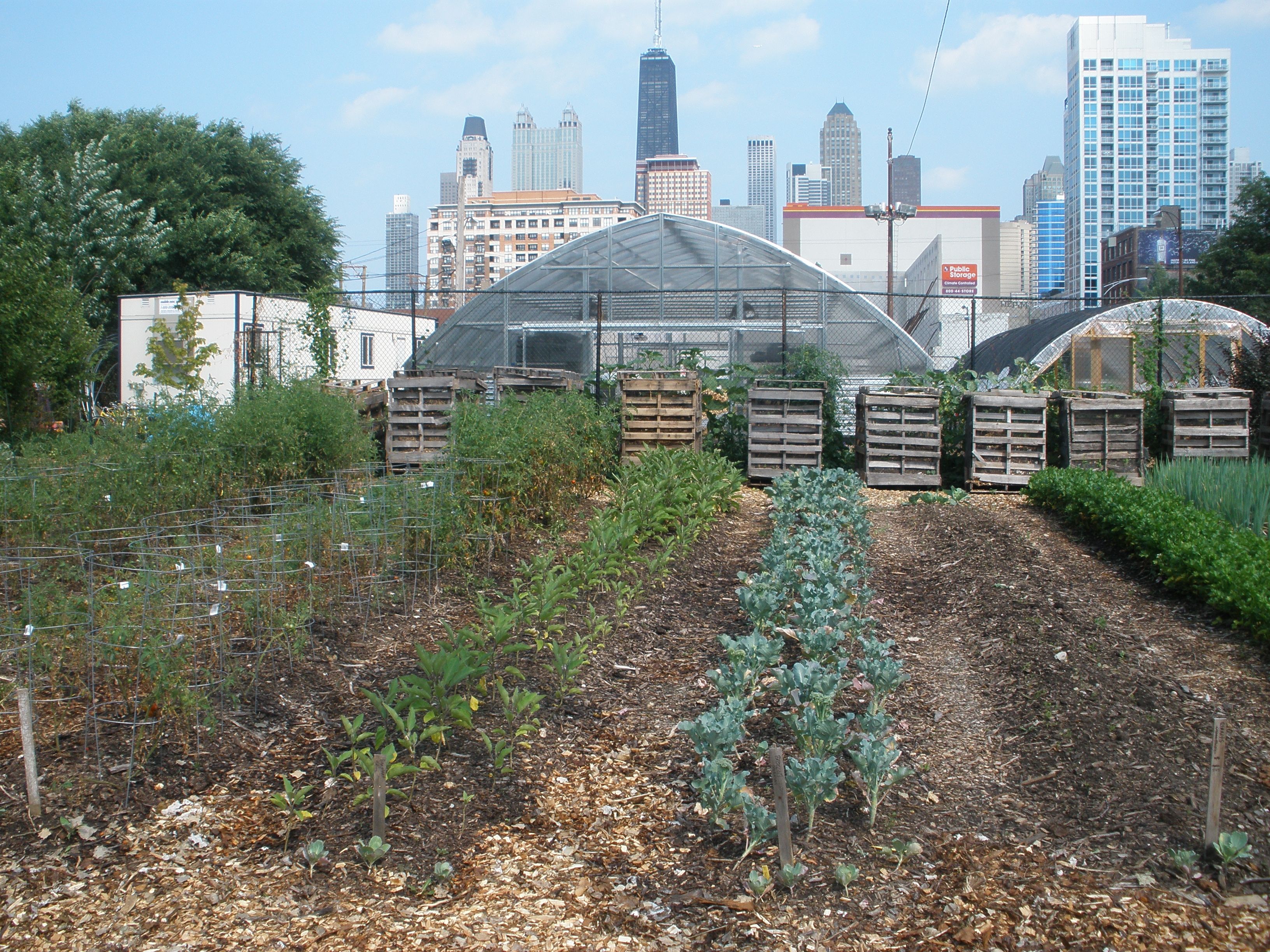CHICAGO — At one notorious intersection of the concrete city, hoop dreams have given way to hoop houses. Basketball has been replaced by baskets full of vegetables.
On the playground courts of the old Cabrini-Green housing project, featured in the 1994 "Hoop Dreams" documentary, an urban farm now flourishes. Tomatoes, kale, carrots, onions, squash and okra grow on dirt plots and in simple greenhouses (called hoop houses because of their shape). Corn stalks reach for the sky in the shadow of Chicago’s iconic skyscrapers.
At 444 W. Chicago Avenue, kids once played hoops day and night, nurturing ambitions of becoming professional basketball players. Now, with the housing torn down, kids root around in the dirt that covers the old courts, learning how to grow up healthy.
When one child in this summer’s Farm Camp, part of the Children Achieving Maximum Potential program, celebrated his 7th birthday, he asked not for cake but for salad.
“So we made salad,” said Natasha Holbert, director of the Chicago Lights Urban Farm. “They really like the kale.”
Chicago Lights is a community outreach organization of Fourth Presbyterian Church on Chicago’s north side. A community garden sprouted on Chicago Avenue in 2003, and it became a small urban farm (two-thirds of an acre) in 2010 as Chicago Lights teamed up with Growing Power, a nonprofit agency that specializes in urban agriculture.
This green oasis, across the street from an old Montgomery Ward office building and a walk from the new Trump Tower, is part of Chicago’s ambitions to bring fresh, affordable food to communities labeled “food deserts” for their scarcity of grocery stores and lack of access to healthy fruits and vegetables. In addition to supplying fresh produce to the local neighborhoods, the urban farms intend to provide job training and youth development and to also teach families about good nutrition and healthy cooking. Earlier this year, Mayor Rahm Emanuel launched “Farmers for Chicago,” an initiative to turn vacant lots into urban farms.
A report from the Chicago Council on Global Affairs this summer, "Feeding an Urban World: A Call to Action," chronicles the progress of the city’s agriculture strategy: About 384,000 residents, most of them on the west and south sides of Chicago, it noted, lived in food deserts in 2011, down from about 630,000 five years earlier.
The stakes, the report outlined, are high. “As we are starting to see in other urban centers around the world, food insecurity in Chicago corresponds with chronic obesity and undernourishment at the same time. Twenty-seven percent of the adult population in the Chicago metropolitan area is obese, with higher rates in many of the low-income neighborhoods of the city.” And the city’s young children, it noted, had higher obesity rates than the national average.
The urban agriculture movement in Chicago and in other American cities – as well as urban centers around the world — is particularly important in the 1,000 Days window from the beginning of a woman’s pregnancy through the second birthday of her child. It is in this time that good nutrition is vital for the child’s healthy development, both intellectually and physically. It lays the foundation for children to perform up to their potential in school and then later in the work force. The nutritional path for healthy development is the same for children in the U.S. as it is for children in Uganda, India and Guatemala.
And so, in May, seeds were sown on strips of green around an early education school on Chicago’s south side. Staff and parents at the Educare school, which enrolls infants and young children, planted tomatoes, corn, pumpkins, peas, eggplant and collard greens. Designed with the assistance of Growing Power, there was a garden bed for each of the classes, ready to harvest as schools opened last week.
It is one of a palette of projects to promote healthy eating and living by the Ounce of Prevention Fund, a Chicago-based initiative specializing in early childhood development. In addition to the Educare schools, Ounce works with pregnant women and new mothers, providing at-home visits that cover everything from nutrition and breastfeeding to exercise and playtime.
At an end-of-the-summer picnic for participants in Ounce’s Healthy Parents and Babies program, young mom Keana Smylie hailed the nutritional advice, particularly the encouragement to search for fresh fruits and vegetables. She buys apples and pears at a local grocery store, but relies on the nearest urban garden project for selected vegetables. Twice a month, she said, she walks to the garden market and buys green peppers, collard greens and cucumbers.
“It’s a great option to have,” she said. “It’s healthier.”
At the Chicago Lights Urban Farm, the young summer farm campers were more artful in their praise of vegetables. They broke out the haiku:
Welcome to the farm
Chicago Lights is our home
Carrots, kale and corn.
We like planting plants
Alive with water and sun
We have to take care.
Seven weeks at camp
Outside we thrive, more aware
Together we can.
